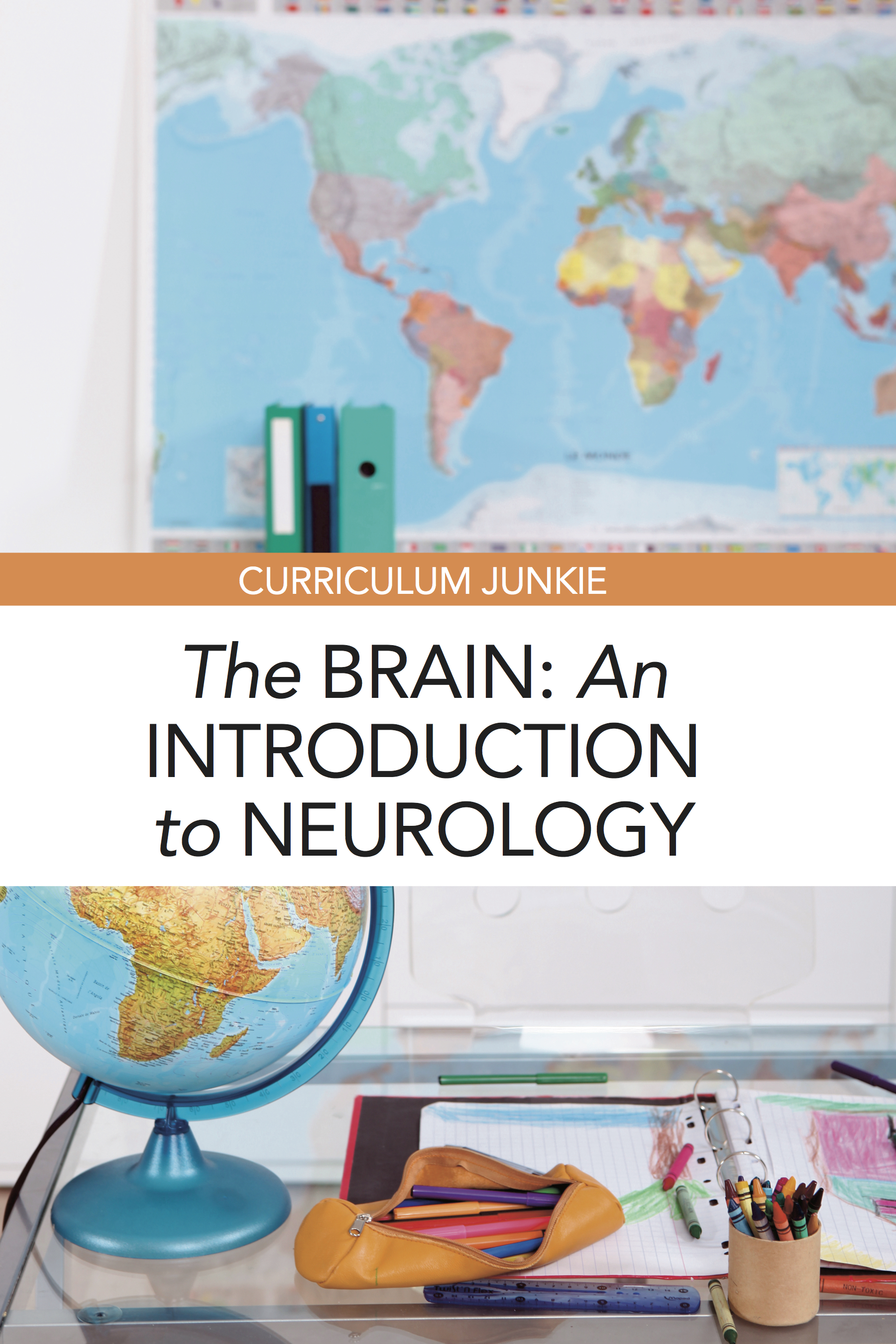The Brain, An Introduction to Neurology: Fun Science for Middle Grades
As the mom of three budding young scientists, each time I open one of Ellen McHenry’s popular books for homeschoolers, I grow more excited. Writing for children ages 8 to 14, McHenry introduces areas of science often deemed too advanced for young students—chemistry, botany, and neurology to name just a few. McHenry recognizes what many homeschoolers quickly come to realize—this science stuff is too much fun to put off till high school!
The Brain, An Introduction to Neurology is one of McHenry’s earlier texts. Although it lacks the colorful content of her more recent works, this is not a resource that you will want to miss. The author is also an illustrator and her black and white sketches are as detailed and informative as the text that they accompany. The result is a superbly balanced layout that succeeds in providing detailed information for older learners, and avoids overwhelming younger readers with text-heavy material.
A reproducible student booklet, a teacher guide and answer key, and a CD rom are the cornerstones of this resource. They come packaged together.
The student booklet is 10 chapters. Topics include a history of brain research, brain anatomy, brain cells, learning and memory, and a look at various brain disorders. Each chapter is divided into two sections. The first section introduces a new topic and is followed by several activities that reinforce new concepts. Wide-ranging activities include viewing videos online, reading additional materials, cross word puzzles, mapping parts of the brain, word searches and more.
The second section of each chapter was developed for more advanced learners or for anyone wishing to delve a little deeper. Additional activities, similar to those found in section 1, follow. Your family may choose to do all of these advanced sections, or you may pick and choose those that most appeal to your child. An answer key for both sections is also included.
The student booklet is followed by the teacher’s section, which opens with a list of recommendations for additional neurology books and websites. From here, McHenry provides unique activity suggestions to accompany each chapter. As one who is forever perusing Pinterest and homeschooling blogs for innovative science projects, I’m certain that McHenry has among the most original ideas out there. Do an MRI of an orange, make a hemisphere hat, memory games and neuron art are just some of the project ideas she includes in the teacher’s section of this book. These activities require minimal materials and prep time. Many of the activities, such as making a human neuronal network, would lend themselves nicely to a co-op setting.
The accompanying CD contains a vocal and instrumental version of “The Brain Song,” to cement the brain’s different functions in the minds of your students. This disc also provides a copy of the student booklet making it easy to produce copies for multiple siblings or co-op students.
McHenry’s books are an ideal resource for groups containing multi-age learners. The Brain contains interesting readings and informative diagrams that are paired with hands-on interactive projects. McHenry’s work is likely to appeal both to academic, bookish learners as well as to active, kinesthetic learners. There is plenty of room for flexibility with this program, however it is realistic to assume one could work their way through all of the material in 10 weeks’ time.
The Brain is available for sale on McHenry’s website. The paperback version is $17.95, and the digital download is $14.95. While you are there, check out all of the free resources McHenry shares with her readers. It is an informative website with lots of great ideas to make your lesson planning tons more fun. The Brain is available at other online bookstores as well.
McHenry’s writing is succinct, engaging, and easy to follow. She has a gift for providing substantive information with a comprehensible delivery. Potentially daunting subject matter, in McHenry’s hands, quickly becomes accessible, relevant and loads of fun.
For more information about Ellen McHenry’s work, see the spring issue 2016 of home/school/life magazine for my review of her book, The Elements: Ingredients of the Universe.



REBECCA PICKENS is home/school/life’s Curriculum Junkie in the magazine and online. She writes for several publications and also blogs at www.steampoweredclassroom.com.